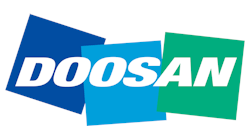Trailers are a necessary grading and excavation evil. They don’t make money and they cost a small fortune, but you can’t do without them-especially when the market is booming. The last thing you can afford is to not get your equipment to your job site on time and intact.
Fifteen years ago, there weren’t many options. You bought yourself a trailer and that was that. But today, myriad heavy-equipment transport offerings exist. How’s a contractor to choose?
The New Flexibility: Ownership, Leasing, Renting, Contracting
“Basically, you’ve got four options: owning, leasing, renting, and contracting out,” explains Jim Ladner, sales manager for Landoll Corporation in Marysville, KS, manufacturer of traveling axle, tag, bottom-dump, gooseneck, and lowboy trailers since 1963. “Today’s contractor has new flexibility. Sure he can own, but if he rents, he can use a 100-ton trailer one day and a 30-ton the next. I see the average contractor in my region doing a bigger variety of jobs than in the past because he can rent exactly the kind of equipment needed for the job. In addition, he can rent the transport and even the operator and bill those costs directly to the job, deducting them as job expenses instead of paying them out as overhead.”
Does this mean that the contractor of the new millennium won’t need to own anything? Not so fast! Sure, options are at an all-time high. But in equipment transport, the bottom line is dependability for a cost that puts black, not red, on your bottom line.
Reliability With a Capital “R”
“In this industry, trailers are a necessary evil,” stresses Steve Flowers, CEO of Interstate Trailers Inc. in Arlington, TX, “but it’s important to remember that though they can’t make you money, they can definitely lose you money.” Industry professionals agree: reliability is the most critical variable in making your equipment transport decisions. No one can afford to not be where they need to be. Penalties and/or lost bids will result. Ownership delivers the highest reliability, but only if your trailer is of excellent construction. A poorly constructed trailer is going to break down on you one day, perhaps at the worst possible moment. And if you routinely overload past your vehicle’s rating, you are also risking a transportation disaster.
Contracting out your transport needs can pass the reliability test if your firm is located in an area with a good selection of haulers and for jobs more than 10-12 days in duration. Industry pros share their insights.
The Case for Ownership: Purchase and Leasing
John Skelley makes a strong case for trailer ownership, the traditional means of grading and excavation transport. He’s the sales manager for Mac Trailer Manufacturing of Alliance, OH, which specializes in aluminum and steel dump trailers, transfer trailers, and aluminum flatbed trailers. “If you are going for the long haul, ownership is the way to go,” he declares. “If you buy a 50,000-dollar trailer, you might pay 150 dollars more monthly than if you leased. But after six years, a high-quality piece of equipment will deliver another several years of use-free of payments-and a resale that will come in at 30 to 50 percent of what you paid. Contrast this with leasing. Sure you spend 10 percent or so less a month in payments. But at the end of six years there will be a balloon payment of some 10,000 dollars.
“Leasing is a relatively new concept in our industry. It’s a short-term versus long-term choice. With short term, leasing is completely deductible as a business expense. There is no money down, but you need good credit. With long term, when you purchase, the value of your purchase depreciates over time. Financing can be easier to obtain, but you have to put money down. The big benefit of ownership? Years without payments and the upside of strong resale at the end. It’s not unusual to get 23,000 dollars for a used, 50,000-dollar piece of equipment.
“For the guy just starting out, it’s likely he won’t get financing for a lease. Purchasing a used trailer is a good option. For example, 25,000 dollars at 900 dollars monthly for three years. That will give him time to feel out his niche in the marketplace. He’ll also get some resale value at the end,” Skelley concludes.
What’s the Value of Your Downtime?
“The real advantage of ownership,” notes salesman Butch Odegaard of Trail King Industries in Mitchell, SD, “is minimized downtime. Every hour that you might be waiting for a hauling firm to pick up your equipment is 1,200 dollars lost. The investment in grading and excavating machinery is so high, they need to be working every possible moment to maximize return on investment.
“Now, if your projects are longer term-four to five months-then contracting out is viable. The day or two you might have waiting for your hauler can be more easily incorporated into your business planning. As a thumbnail, I’d say for bids averaging more than 12 days, contracting can be considered.”
“Up till now, everything in our business has been pretty stable, pretty predictable. But now everything is in flux. No one predicted the amazing growth of rental in our industry!” exclaims Gregory Gargis, sales manager for Tractors Inc., a heavy equipment dealership in Celina, OH. “For example, in a few years, Caterpillar might very well be the largest rental company in the country. If someone had strolled into our dealership five years ago asking to rent a piece of equipment instead of purchasing it, we’d have just laughed at them. Now rental is the fastest-growing part of our business.
“I think the choice boils down to hours. If you regularly put hours on a given piece, it’s paying for itself.” Then ownership or leasing makes sense. “But if it’s something you only use occasionally, you are better off renting or contracting out. You need to keep your money moving as much as possible, not sitting in equipment that is hardly used.”
Consider the Size of Your Operation
“In our experience, it’s the small and midsize operations that are now more inclined to rent,” states Al Behr of Premco Products Inc. in Laverne, CA, manufacturer of the Triple L trailer. “We’ve been manufacturing for the rental industry for 20 years, and those customers kept coming to us with their problems with trailers. Trailers made them nervous in terms of liability and safety. So six years ago we designed a trailer that can truly be safely loaded with only one person. At 7,000 pounds it’s perfect for small to midsize hauling needs. Increasingly, those rental customers are seeking us out looking to buy.”
“When you are making this kind of decision, you need to speak with your tax advisor,” underlines George Hinkley with the sales and marketing department at Best Trailer Corporation in Kewaskum, WI. “Sure you can look at general guidelines for ownership versus leasing versus contracting out, but the bottom line comes at tax time. A lease is 100 percent deductible as a business expense, as is contracting out your transport needs. When you own you can only spread out the loss in value of that investment over several years. I’d strongly advise seeking input from your financial advisor.”
“There is a rule of thumb,” Flowers observes. “When the market is good, you should own or lease. You can afford to have your money tied up in equipment, and you want complete control over your equipment transport. When the economy slows down, renting or contracting out is the way to go. The trend right now is to own because there is so much work. When there is a downturn, I have a hard time selling trailers.”
“Loading a trailer takes manpower and labor. Those costs should be charged back to that trailer,” Behr points out. “Maintenance costs should not be overlooked, nor should the initial purchase price. Then you can arrive at a true cost of ownership.”
Contracting to Minimize Transportation Headaches
Flowers notes, “Before highway departments got smart and starting requiring multiaxles to distribute the weight, ownership was standard. But today, with all the regulations, contracting out makes more and more business sense. In this day and age, the contractor dealing with bigger equipment doesn’t have time to figure out how to legally haul it. Contracting out definitely has value. In California, for example, the highway transport laws are just impossible. At 70,000 pounds and above, in order to meet axle requirements, you are talking about a rig that is like a train.”
Gargis adds, “[Certified] drivers are extremely difficult to get these days. Plus you are paying for the trailer, maintenance, and insurance. Contracting out is a definite alternative, but there is a big downside: You don’t have 100 percent control of your schedule. I’d advise that you find a reliable hauler and keep him. The best way to keep him reliable? Pay him on time. Pay him before he expects it. Let’s face it: Cash flow is tight for everyone. Be like his bank, and he probably won’t let you down.”
Quality Counts: Look From the Bottom Up, Not the Top Down
“It’s a lesson that’s always learned the hard way,” remarks Behr. “When people think of a trailer, they think of U-Haul. They can’t imagine they need an expensive one. So they end up going through a poorly made, cheaper one once or twice, which costs them more in the long run. The tendency is to ‘underbuy’ in trailers, using a trailer that is not rated for the capacity it will be hauling. We don’t have another product where people overlook quality of construction or load-capacity issues so significantly. The trailer is behind them; no one is riding in it. Out of sight, out of mind. Though a trailer doesn’t make you money, it can definitely cost you money when it breaks down. All it takes is for a trailer to fail once on an important job, and then suddenly you are paying significantly.”
Whether you purchase, lease, rent, or even contract out, the construction of the trailer that will be transporting your equipment is critical. “You need something that’s going to stand up to hard work,” agrees distributor Bill Gardner of Les Machineries Pronovost Inc. in St. Tite, PQ, Canada. “Though we strive to make a handsome piece of equipment, how a trailer looks is far less important than the quality of its construction.”
“Frame construction is completely unregulated,” observes Flowers. “People can make any claims they want to. Use common sense. Get on your hands and knees and look from the bottom up, not the top down.” He offers a checklist: “Look for I-beam construction versus channel, cold-formed beams-no cutting or notching, and high tensile strength, characteristically lighter and stronger. Always read the spec on the vehicle closely; an antilock brake system has been the law since ’98, but some manufacturers are still hedging here. Check gross-vehicle-weight rating, because some manufacturers will tweak the numbers, and look for 17-digit serial numbers on the trailer, which guarantees it is registered with the Department of Transportation.” Though you might pay more higher-quality trailers, the payback can be significant. “You won’t have to worry about surprise breakdowns,” says Flowers. “And if you own, the resale on quality equipment can be substantial. I’ve been tracking our trailers at resale, and they currently are averaging 75,000 dollars for five-year-old equipment at auction.”
Though there have never been more options for a grading and excavation firm’s transportation needs, some things haven’t changed. Don’t buy because you like how it looks, lease because there’s no down payment, or contract out because you don’t want the headaches. Look for quality. Look closely at your operations. And over a cup of coffee with your accountant, find out the best way to keep your transportation needs from impacting your bottom line.



